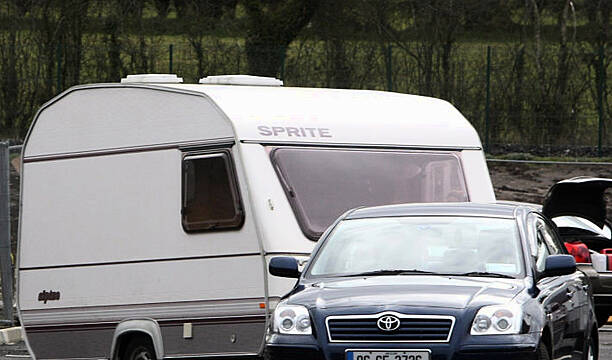Travellers and Roma face the highest levels of prejudice of any ethnic group in Ireland, a report has found.
According to the report, by the Economic and Social Research Institute (ESRI), people living in affluent areas were less comfortable with having Travellers as neighbours or in a relationship with their children than those living in disadvantaged areas.
New ESRI research on attitudes to social groups, published as part of a joint research programme on integration and equality between the ESRI and the Department of Children, Equality, Disability, Integration and Youth, examined the factors associated with attitude to a range of social, ethnic, and religious groups.
It used representative survey of 3,008 adults carried out in spring 2023. The report also provided context on the socio-economic situation of Travellers and Roma, drawing on Census 2022.
It also found that residents of the border region and Dublin were most tolerant of both groups, while people living in the West and Midlands were least tolerant of Travellers, and people in the South West and Midlands were least tolerant of Roma.
Travellers and Roma are two distinct ethnic groups with different histories, cultures, and languages. However, the report found that attitudes to both groups are similar in Ireland.
They stood out as the groups that people in Ireland are least comfortable with in three areas of their lives.
On average, people were found to be most comfortable having Travellers and Roma in their child’s class in school, less comfortable with having them as neighbours and least comfortable having them in a relationship with their child.
Generally, those who also had tolerant attitudes towards the most stigmatised groups in Irish society, such as those with substance abuse issues and criminal records, held tolerant attitudes towards Travellers and Roma.
However, positive attitudes to Roma were in some cases associated with positive attitudes to a broader range of ethnic and national groups. This was not the case for Travellers.
Overall, women and young people, aged from 16 to 20, were more tolerant towards Travellers and Roma than men and older age groups, while more educated respondents were generally more comfortable with Travellers and Roma compared to less well-educated respondents.
Homeowners were less tolerant of Travellers and Roma than those living in privately rented accommodation or social housing.
Those who described themselves as ‘middle-class’ were less comfortable with Travellers and Roma than those who described themselves as ‘working class, and people who volunteered in the past year were more positive to both ethnic groups, suggesting that civic engagement is associated with tolerance.
According to Census 2022, three per cent of Irish Travellers and 26 per cent of Roma aged over 15 years old had a third-level degree, compared to 34 per cent of the white Irish population.
Further, the Census also found that Irish Travellers were much less likely to report their health as good or very good, at only 67 per cent, while this figure for white Irish people was at 88 per cent, and Roma was at 86 per cent.
The census findings were consistent with previous research on Irish Travellers, but Census 2022 was the first to enumerate Roma in Ireland, so no comparison could be made.
Author of the report, Dr Frances McGinnity, said that the views of the majority population are important for understanding the experience of minorities.
“For Travellers and Roma, this report highlights high levels of both prejudice and disadvantage. In some ways, factors associated with higher levels of comfort towards Travellers and Roma are similar to migrant minority groups, for example, having third level education,” she said.
“Yet people finding it more difficult to make ends meet, those living in social housing and those living in disadvantaged communities are generally more comfortable with Travellers, in contrast to findings for migrant groups, suggesting anti-Traveller racism may be distinct from other forms of prejudice in Ireland.”
The Department of Children, Equality Disability, Integration and Youth said that the ESRI research builds on the IPSOS survey the department published in June 2023, which reported ‘disappointing attitudes [amongst the wider population] towards members of the Traveller community and the Roma community’.
“That survey reinforced the need for revised national equality strategies to address the attitudes that give rise to discrimination. To this end, the National Traveller and Roma Inclusion Strategy II 2024 – 2028 was launched in July 2024.
“The new ESRI research provides welcome new insight into perspectives and prejudices, and so will greatly assist in the delivery of actions under the Strategy,” they commented.







